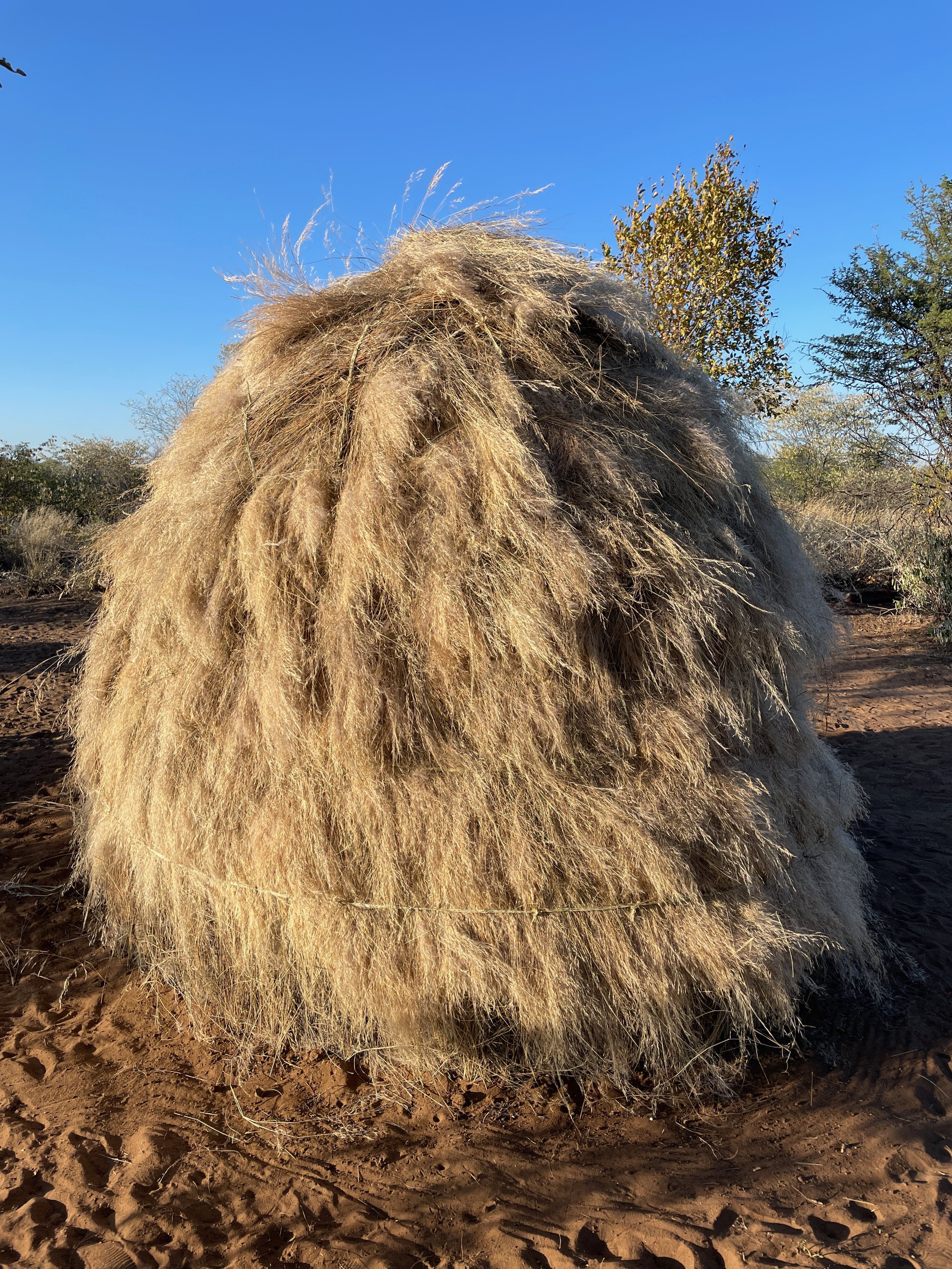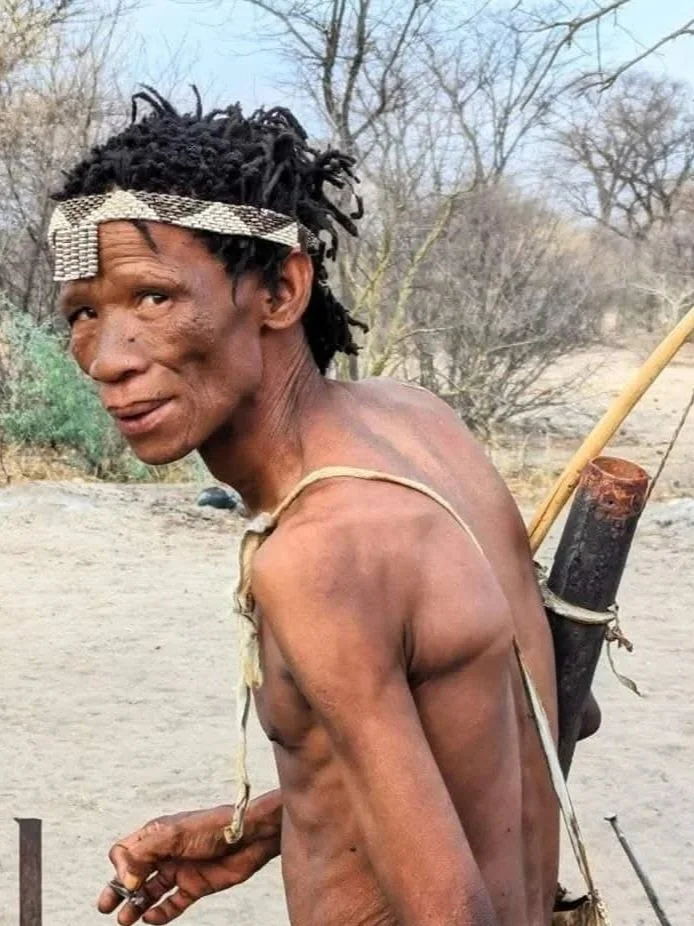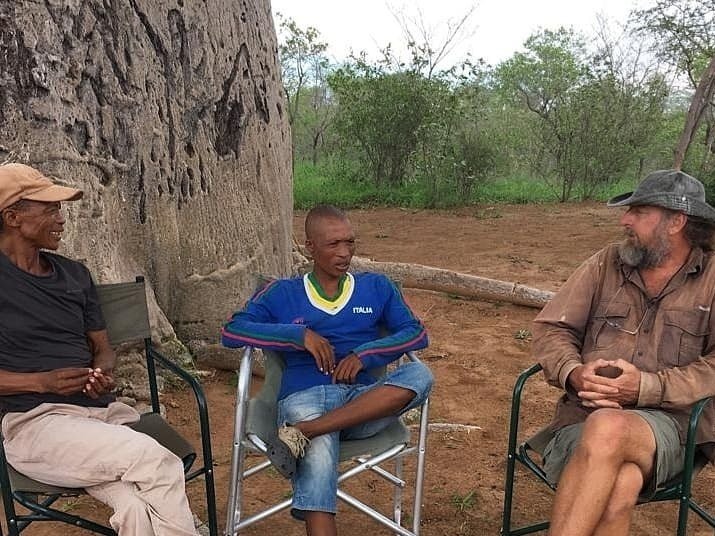
Keeping the Old Ways alive in the Kalahari
What we do
Our work with the villages
The Ju|’hoansi Bushmen
The Ju|’hoansi of Southern Africa, thrived very successfully as hunter gatherers for thousands of years until the last century, when their way of living was destroyed by colonising societies. They lived in sustainable, healthy and happy small communities based on mutual respect and mindfulness towards each other and the environment. Their ancestral communities are a huge contrast to the modern, western lifestyle that is dependent on money, food and imported goods, with constant competition with everyone in order to survive and thrive.
Looking deeper into the old way of the Ju|’hoansi, we find many customs we could learn from. For example, the way they treat children, other people, prizing equality, inclusion and fairness, mentally and physically healthy. They live in peace, conscious of the community’s well being, living sustainably on the land, in combination with a range of high level skills, like plant knowledge and use, hunting ways, tracking and many more.
As the Ju|’hoansi were relocated into towns like Tsumkwe, their old knowledge and skills began to rapidly disappear while poor health, TB, alcoholism and crime appeared. Nowadays, some of them have decided to reverse this trend, moving back into the Nyae Nyae wilderness, starting to eat healthily again, relying on what nature provides, and keeping community, provisioning and craft skills alive, for a better living and future.
Many people in modern societies are looking for more natural, healthy and sustainable ways of life in harmony with people and the natural environment. We are aware that nobody can return to fully hunter gatherer lifestyle any more, but some values of the old way are much better than the modern ones. For us in Europe, working directly with the Ju|’hoansi is a great opportunity. Our donor members could regularly visit them, learn from them and support them in many ways. To this end we are creating an international network of rewilding humans for a better and sustainable future.
Our projects are about teaching ancestral knowledge to preserve it, and supporting a sustainable development model for villages who chose to live traditional lives in the modern world. Find out much more about the villages that we work with below.
Discover Djamta!’ae Heritage Village and Di//xao#oha Heritage Village
The Foundation is for the Ju|’hoansi people of the Kalahari. Click here to read about current projects.
We are asking you to give a small amount every month, as a membership subscription, so that there is a regular income to support our projects in the heritage villages.
As a contributing member you will be welcomed to stay with them and be given with free camping accommodation during your visits to either Djamta!’ae or Di//xao#oha.
Take this opportunity to give directly to the projects that these gentle, talented people need to transit mindfully and sustainably to this new world they find themselves in. With your help they can avoid the traps of poverty and dependence and make their new villages self-sustaining.
You can donate here with a credit or debit card or through PayPal paypal.me/heritagevillagefund or contact us for bank transfer details.
Donate to join us
Who we are
Heritage Village Foundation Ltd is a not-for-profit company limited by guarantee (not by shares) and registered with Companies House in the UK, who have approved it as a foundation. Our not-for-profit status means that all funds are administered entirely for the benefit of the Ju|’hoansi villagers, and money is not used to pay directors’ salaries, bonuses and dividends.
Click below to find out about our team and how we administer the project.
Contact Us
Interested in volunteering or visiting Namibia as a member? Fill out some info and we will be in touch shortly. We can’t wait to hear from you!






